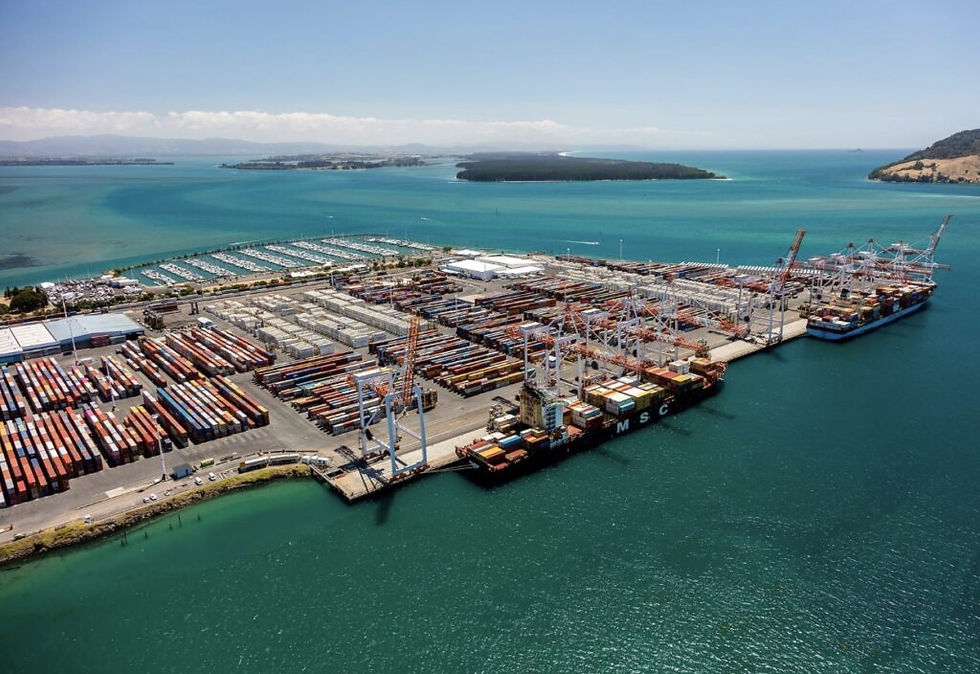Fast-track Approvals Act 2024 application faces judicial review
- Aug 7, 2025
- 3 min read
Introduction
The first legal process challenge under the Fast-track Approvals Act 2024 (“FTAA”) has been issued. In this case, Ngāti Kuku and Ngā Hapū o Ngā Moutere (“the Applicants”) sought interim relief from the High Court in the context of judicial review proceedings challenging the Environmental Protection Authority’s (“EPA”) initial scope and completeness decision of a substantive application by the Port of Tauranga (“the Port”). The Applicants sought to pause the processing of the Port’s application pending the outcome of the judicial review.
Background
The Port submitted its application under the FTAA in April 2025, seeking approval for its Stella Passage project. Although broadly similar to a prior application that had been partially consented via direct referral to the Environment Court (Stage Two remains undecided and Stage One was appealed, including by the Applicants), the FTAA application included new elements such as a wildlife approval and a consent for crane installation. The Applicants, who had been active participants in the earlier Environment Court consenting process, objected to the EPA’s completeness decision on the grounds of inadequate consultation and other alleged deficiencies in the Port’s pre-lodgement.
The Port’s response
The Port opposed the relief, noting that the Applicants would likely be invited to comment during the FTAA process. The Port also submitted that it would suffer significant commercial prejudice if the project were delayed further.
Court’s decision on interim orders
The Court declined the application for interim orders, holding that they were not necessary to preserve the Applicants’ position. It found that no irreversible steps would occur before the judicial review could be heard and, if successful, any decision made by the expert panel could be set aside. The Court considered that, if the judicial review were successful, it was highly likely the Port would submit a second application, which would be informed by feedback received on the first application. Therefore, the parties’ costs and effort expended on the first application would not be wasted. The Port’s separate application to stay the judicial review proceedings was also declined. The Court found that, while the judicial review challenged a procedural aspect of a Fast-track process, there was no abuse of process or impropriety justifying a stay.
Court’s observations on review grounds
The Court briefly opined on the substantive merits of the review. It considered that some grounds might be arguable, including:
Whether the wharf extensions, although not specifically listed in Schedule 2 of the FTAA, were still covered by the application. The Court noted that the extensions appeared consistent with the geographic scope and definition of “development,” but also observed that the application might not strictly meet section 46(2)(b) of the FTAA, which requires that it apply “solely” to the listed project.
Whether consultation pre-dating the Port’s substantive FTAA application was satisfactory: the Port relied on consultation undertaken in associated with the Environment Court process and its FTAA Schedule 2 listing application.
Priority fixture granted
Given the substantive issues raised, the Court granted a priority fixture, recognising the importance of timeliness in FTAA processes.
Comment
The substantive decision will be one to watch closely, in particular how the Court approaches the issue of scope – whether it adopts a narrow interpretation of the Schedule 2 descriptions or allows some flexibility.
It will also be interesting to see how the Court approaches consultation requirements under the FTAA, particularly given the FTAA's silence on tikanga and how that may influence expectations for consultation with Māori.




